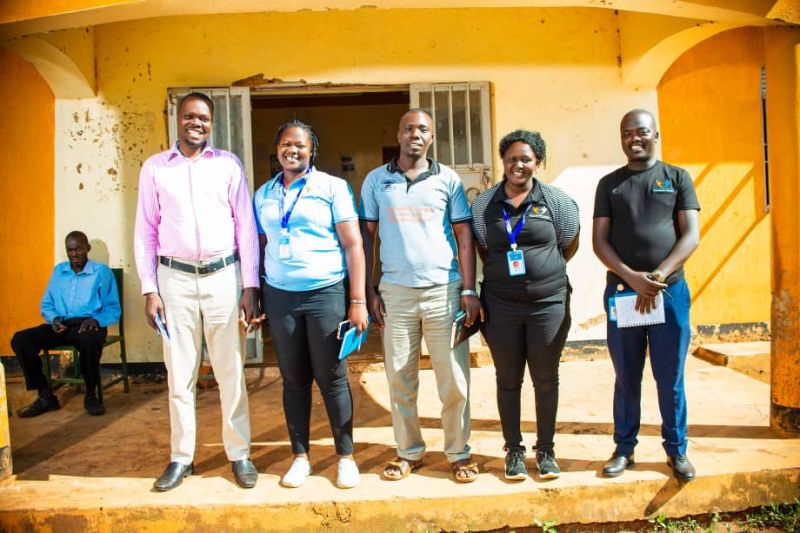By Richard Okello, NCF – Interim Executive Director
Email: ed@nwoyacharity.org
In recent years, communities across rural Africa—especially in Uganda—have begun to feel the sharp sting of reduced international aid, particularly from one of the continent’s longstanding development partners: the United States Agency for International Development (USAID). As Washington reassesses its foreign aid priorities, the fallout from reduced funding is being acutely felt in health clinics, schools, women’s empowerment groups, agriculture cooperatives, and youth programs—especially in rural, underserved communities.
USAID has long been a lifeline for millions, investing billions of dollars in health, education, infrastructure, food security, and governance. Uganda, one of its key partners, has historically received hundreds of millions of dollars annually in development aid. But in the face of shifting U.S. foreign policy, global economic pressures, and domestic political concerns, significant portions of that funding have been reduced or redirected.
The consequences are not abstract—they are deeply personal and immediate.
Where the cut hurts the most: Voices from Rural Uganda
In rural health centers, mothers walk miles to clinics only to find that life-saving medications, maternal health programs, and trained midwives are no longer consistently available. Many clinics that depended on USAID-funded projects to treat HIV/AIDS, malaria, and maternal complications are seeing rising mortality and infection rates. In schools, children are learning in overcrowded classrooms as support for teacher training, scholastic materials, and feeding programs dwindles. Girls, especially, are dropping out as menstruation kits, reproductive health education, and scholarship programs are scaled back or shut down.
In agricultural communities, farmers who once received seeds, tools, and training through USAID-funded programs are now struggling to maintain productivity. Climate resilience projects that once gave hope to smallholders are being frozen just as the effects of climate change worsen. And for civil society and youth organizations, USAID’s support for civic education, entrepreneurship, gender-based violence prevention, and peacebuilding has been vital. With these programs winding down, rural youth face renewed vulnerability to unemployment, exploitation, and extremism.
What the data tells us?
According to reports from Uganda’s Ministry of Finance and international watchdogs, someUSAID-funded projects in education, HIV prevention, and agriculture have seen cuts of up to 30–50% since 2022. Across Sub-Saharan Africa, similar reductions have occurred in countries like Ethiopia, Malawi, and South Sudan—particularly in humanitarian and health programming.
These cuts come at a time when the region still grapples with post-pandemic recovery, soaring food prices, and displacement crises caused by conflict and climate change.
Lessons we must learn
- Donor dependence is not sustainable: Rural development built solely on donor funds is inherently vulnerable. African governments and local institutions must invest more in their own systems and reduce over-reliance on external aid.
- Strengthen local ownership and resilience: Programs that are community-owned and locally financed—however small—tend to last longer and adapt better. Local NGOs, traditional leaders, and grassroots groups must be empowered to take greater control over development efforts.
- Diversify development partnerships: Relying heavily on one donor or country exposes communities to abrupt changes. African countries must diversify their partnerships—not just with bilateral donors but also with private foundations, regional bodies, and African-led funds.
- Prioritize domestic resource mobilization: Governments must increase domestic budget allocations for health, education, and social services. This requires curbing corruption, improving tax collection, and making rural investment a political priority.
- Plan for sustainability from the start: Every donor-funded program should have a clear sustainability plan that includes government buy-in, community participation, and gradual handover strategies.
Moving forward with hope and hard truths
USAID and other donors have made a profound impact on rural communities in Uganda and across Africa. Their contributions have saved lives, improved livelihoods, and opened doors for millions. However, the recent funding cuts are a wake-up call: the future of African development must be African-led, African-funded, and African-owned.
Communities can no longer afford to be caught off guard by external decisions made in foreign capitals. It’s time to invest in local capacity, accountability, and resilience—not just because aid may vanish, but because dignity demands it.
In the end, the goal of aid should not be perpetual dependence, but empowered independence. If we take the right lessons from these challenges, rural Africa can rise stronger, wiser, and more self-reliant than ever before.
Now is the time for action.
We call upon:
- The Government of Uganda to urgently increase domestic funding for critical services—especially in health, education, and youth empowerment.
- Local and international partners to fill the gap by investing in sustainable, locally-led programs.
- Philanthropists, private sector actors, and diaspora communities to rise in solidarity and mobilize resources.
- Community leaders and citizens to support grassroots solutions, accountability, and resilience.
The future of our rural communities cannot be left at the mercy of foreign policy decisions alone. Let us build from within.
Support Nwoya Charity Foundation (NCF) in keeping hope alive—through education, healthcare, and empowerment for the most vulnerable.
📧 Email: info@nwoyacharity.org
📞 Phone: +256784004631
🌍 Website/Socials: www.nwoyacharity.org
Act now. Because our people deserve more than broken promises—they deserve a future.
